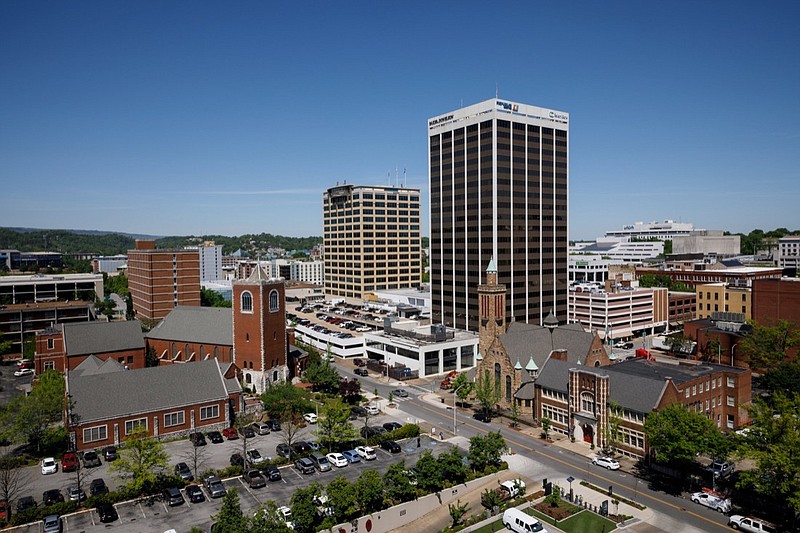An ordinance to form a business improvement district in central Chattanooga failed late Tuesday after nearly two hours of heated public and City Council debate.
After the first reading of the proposal narrowly passed the council last week, the ordinance was put up for a public hearing and subsequent final vote. In the crowded council chamber, more than a dozen concerned citizens spoke to the members, offering a fiery and mixed bag of opinions.
Before the hearing began, City Attorney Phil Noblett explained that only property owners within the district would be allowed to speak and that each speaker would be given three minutes to speak after River City President Kim White was given three minutes to speak about the district. White waived her time and comments began with a string of adamant supporters of the business district, including community leaders such as former mayor Jon Kinsey and Tennessee Aquarium CEO Keith Sanford.
"We're all smart business people in the room and we don't want to levy ourselves with fees and taxes," Mitch Patel, president and CEO of Vision Hospitality, said. "But the way I look at it, [the business district] is an investment. It's an investment in a better downtown. It's an investment in the businesses we already have and want to continue to grow and invest in."
Patel and the other business improvement district supporters consistently said they support the district, despite the fees they would pay, because of the value they believe it would bring to their businesses.
Others feared the financial impact the district would have on property owners while they own it and if they tried to sell property within the district's boundaries.
"The BID will add a hardship to me in two ways," said William Wise, who owns three affected pieces of property, two of which are vacant. "One, by paying fees for property producing no income, and two, by decreasing the attractiveness for new tenants who would have to pay a higher cost to lease a new property."
The meeting skewed out of order multiple times, most notably when a member of the public began yelling at the council without coming to the podium about an issue unrelated to the business improvement district and defied orders from Chairman Erskine Oglesby, ultimately having to be subdued by a police officer. And again when a woman adamantly opposed to the district began speaking and was derailed when Oglesby realized she was not a related property owner. She continued speaking, calling it unfair for other citizens not to have a voice at a public hearing and screaming at Oglesby after he turned off the microphone and on several occasions throughout the meeting.
In all, 15 members of the public (excluding White and other River City representatives) spoke at the meeting. Seven of the citizens supported the district, six were opposed (though three of the opposed were not business improvement district property owners), one was neutral but wanted to be excluded and the other spoke on an unrelated matter.
At the conclusion of the hearing, the council, led by council members Carol Berz and Darrin Ledford, picked apart Tennessee code and the proposed ordinance for around an hour and 15 minutes, adding a total of seven amendments. The amendments allowed some property owners to opt out, gave the council the right to confirm the initial district board appointees and required the district's board to adhere to state open meetings acts, perform an annual audit and assume all liability for itself, and specified some language.
The recurring theme among council members was a frustration with the business improvement district formation process and ambiguity of related state laws.
"I want to echo what my colleagues have said. I have been very bothered by this process," Berz said. "I feel like I've been held hostage. Not by [the council], but by a state law that I think is very inappropriate. I've said this before and I'll say it again, I'm tired of the state intervening in the practices we think are best for the community."
Councilman Anthony Byrd, perhaps the quietest at the meeting, motioned to approve the densely amended ordinance, but it failed due to a lack of a second.
With the ending, dozens of supporters left, some shaking their heads and giving thumbs down to the council.
The woman opponent who had been previously ruled out of order shouted "Praise the lord, hallelujah, we've got some ... sense."
White declined to comment on the failure of the amendment after the motion.
Contact Sarah Grace Taylor at staylor@timesfreepress.com or 423-757-6416. Follow her on Twitter @sarahgtaylor.
